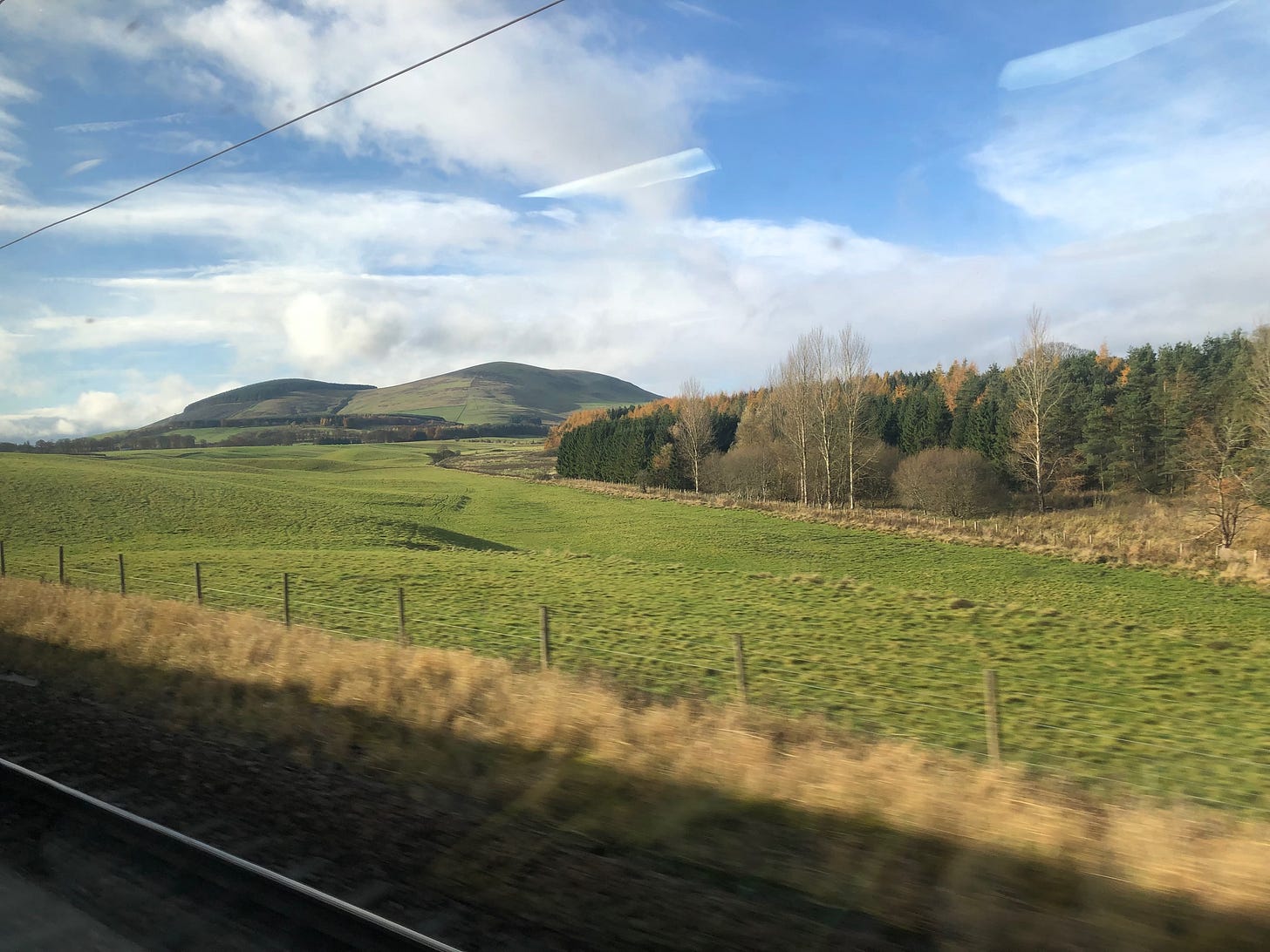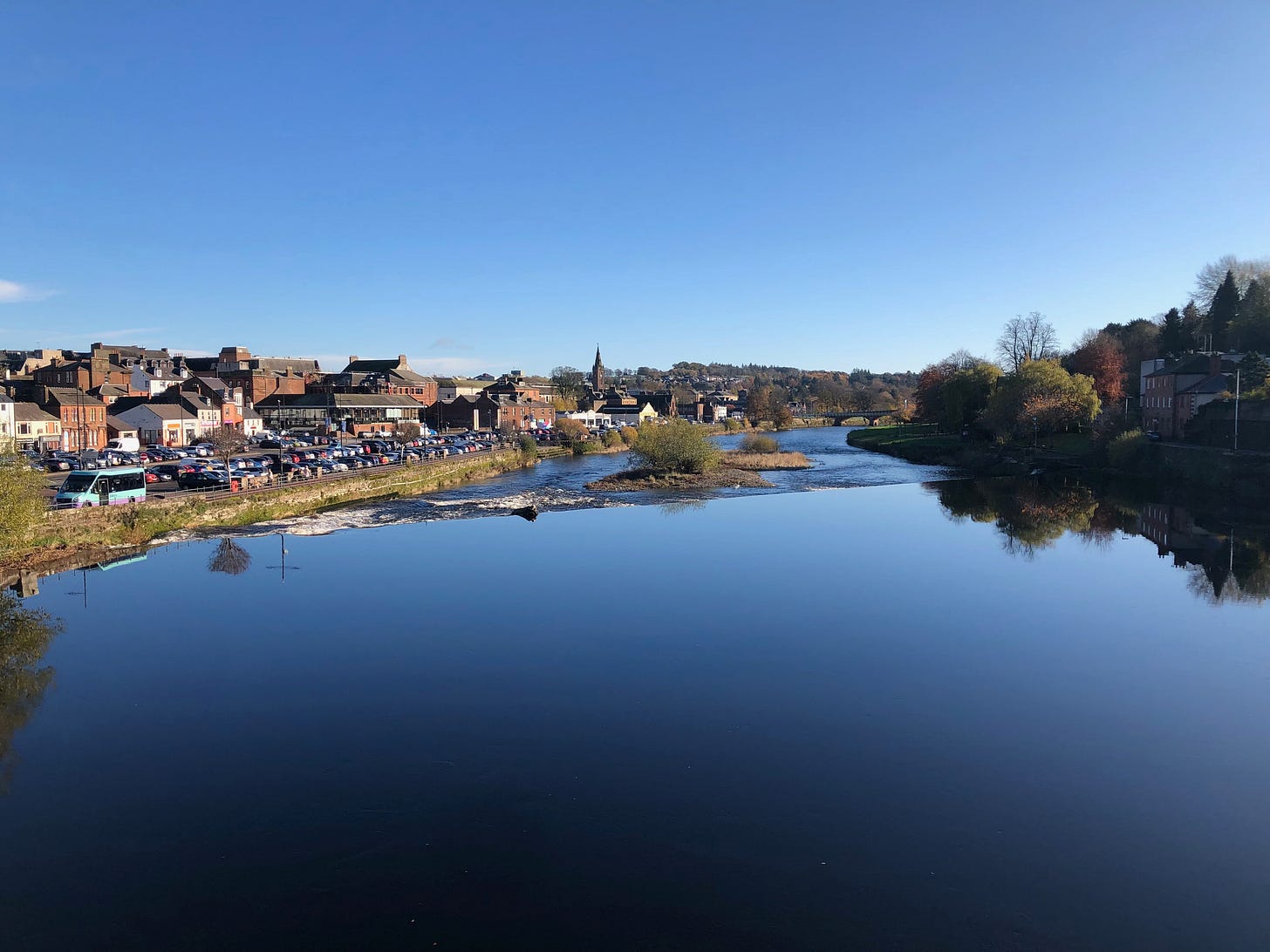What are we longing for?
Comparing Economic and Social Aims of Redmond, Washington and Dumfries, Scotland
My frequent travel between my hometown of Redmond, Washington and the place that has become my second home over the past five years, Dumfries, Scotland, has resulted in quite a bit of culture shock. Economically, I have thrived in Redmond and similar thriving tech towns of the American west coast. Socially, I have thrived in Dumfries and other European places. When I once lamented the lack of ‘culture fit’ I feel in my own American hometown to a European friend, they were quick to point out the economic differences between the two places and conclude that is probably the source of my troubles.
I’ve never been able to put this theory to the test, but the suggestion has sat with me since it was made about a year ago. Previously, I had never considered the role of economic class in shaping culture. I wouldn’t dare boil culture down to money, but it certainly plays a noteworthy role. It is true that everywhere I have lived in the US has been dominated by the white collar middle class. Most of my family and friends in the US are middle or upper class. Meanwhile, Dumfries is one of the most economically deprived regions of the United Kingdom, with the majority of the population being lower or working class.
I myself went through a class change around the time that I first moved from Redmond to Dumfries, having given up a six-figure tech career for academic and literary pursuits. Unlike the typical story, my income went down as my education went up. I only held a High School diploma when I was flying high at Microsoft, Amazon and Apple; now I hold a Master’s degree and live on about a quarter of the income I previously did. This would be dismaying news to many, but the reality for me is that I am much happier with less than I ever was with more.
In Redmond and San Francisco, the two major tech hubs I’ve lived and worked in, there are thriving communities by economic standards, yet these places are also known to be plagued by loneliness. I can’t think of any direct reason why money should contribute to anyone’s loneliness, but it is far more common for people to live alone when they have enough money to do so - rather than staying with family or sharing a flat with friends. Folks also often leave their families far behind when they move to take high paying jobs. Tech entrepreneurs frequently talk about new apps that might bring people together, create community and treat this loneliness problem that faces many wealthy regions. So far, it remains a desire more than a reality.
By contrast, in economically deprived places like Dumfries, while loneliness is also a problem, it is not as often talked about and doesn’t seem to be as pervasive. Whether by choice or necessity, people more commonly live in shared homes - in fact I can’t think of anyone I know in Scotland who lives alone. Furthermore, there are always a plethora of social events happening. Of course, lots of events are on in economically thriving places too, but I notice it can be harder to start a conversation with a stranger at such events in wealthy cities. With a more connected community in Dumfries, the longing I notice is for economic growth - rebuilding the high street, creating jobs, etc. Just as many attempts at treating loneliness exist in Redmond, there are many attempts at economic revitalization in Dumfries that have yet to be realized.
Flying back and forth, I wonder if economic and social vitality can coexist. If Dumfries were to experience the economic boom Redmond has since the arrivals of Microsoft and Amazon, what would it lose? Is it possible for Redmond to become more socially connected given its current economic state? While there are clear barriers to economic growth in Dumfries, it’s hard to say why Redmond can’t be more socially vibrant.
When I think of blue-collar working class communities in Washington state and around the US, I am reminded of the notions of ‘Southern hospitality’ and general friendliness that poorer communities in the US are known for (or at least characterized as having). This is of course anecdotal, I have never lived in an economically deprived part of the US before. I suspect I might find more welcoming communities if I ventured to some of these places. The TV series ‘Home Town’ has documented many city slickers opting for the country life, citing friendliness and community as a key factor. Is it rich vs poor? urban vs rural? individual vs community? Why is there a correlation of these things that need not be correlated?
I’m helpless to change either place or even figure out why they have unnecessary differences, but I wonder if the rich have more to learn from the poor than vice versa. I wonder if Redmond’s wealth is indeed the cause of its loneliness quandary, or just a mere correlation. I don’t mean to romanticize poverty either, especially when it is at the point where people can’t afford to put food on the tables or heat their homes. We need economies that can give everyone a good quality of life. But rather than strive for more and more, I think it’s important to consider what might be (or already has been) lost as we pursue ever greater economic growth.
For me, I wish I had the superpower to create more connected and caring communities everywhere I go, and sometimes my ego makes me think I can, but the reality is that for my own wellbeing I might be better off sticking to the places where such community already exists. Which is convenient, because they’re more affordable but inconvenient because the only one I know so far (Dumfries) is not one I can live in due to immigration rules (a topic for another blog post). One of my goals as I set out on six months of travel for Project Salmonburg is to get a better sense of where these communities are, how to find them and what makes them thrive. Thanks for joining me on this adventure!




